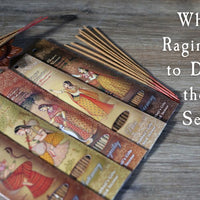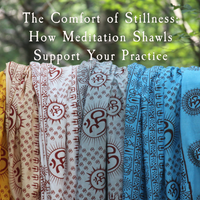“To meditate is to open the eyes of our soul and dare to look attentively and continuously.”~ excerpt from Yoga Union With Reality by Prabhuji
“But how?” I hear you asking yourself after reading the words of Prabhuji, a self-realized soul and continual source of spiritual inspiration to his disciples and followers as he lives in a constant state of meditation.
Despite all of the meditation classes and guided sessions available to spiritual seekers around the globe, meditation is not something that can be taught; it cannot be learned. It can, however, be discovered within. Actually, oneself is the only one who can make this glorious discovery through attentive watchfulness.
Meditation, or dhyana, is not just a matter of sitting still with our eyes closed in a peaceful environment: it is to transcend thought.
There are actually many different meditation practices that come more naturally to different spiritual aspirants depending on their inclinations. Hatha yoga, the well-known physical yoga that involves placing the body in different postures, is one form of meditation. Another is japa, the recitation of a mantra while moving prayer beads through the fingers, and still another is kirtan, which is the congregational singing of mantras with devotion. Puja, the worship of a deity, can also be a form of meditation, as can tantra.
What do all of these practices have in common? They aim to help the practitioner to still the mind; to become an empty vessel that the Divine can fill with its grace and wisdom.
“The soul experiences an irresistible attraction towards the divine, in the same way that a needle is attracted by a powerful magnet, until it abandons itself completely to God,”Prabhuji wrote in his book Yoga Union With Reality.
“Meditation typically pursues divinity deep within us.”To meditate is to be in the now, rather tan recalling the past or looking toward the future.
“To meditate is to place ourselves in the hands of God…it is to rest ourselves in the essence of what we are…since there is nothing we can do to be what we already are, always have been and always will be… the only thing we really can be,”Prabhuji said.
“Meditating is not complicated, it requires no effort; it is much simpler than what is generally thought. Meditation is indescribable to the human mind because it is an experience that transcends the limits of time, space and causality.”Prabhuji never seems to tire of telling his disciples that, “Meditation is to place ourselves in the now, the appropriate situation for consciousness to become conscious of itself. Meditation is to discover ourselves.” “To accept the present is to lower our defenses, to stop protecting ourselves and allow the present moment to come close and happen within us, until we discover the now as the most essential and authentic in ourselves,” Prabhuji said.
“To meditate is to leap outside of the concepts of space and time, to discover in the here, the infinite, and in the now, eternity.”It was Patanjali Maharishi who masterfully organized and expounded on the basics of yoga, a Hindu system specifically concerned with the mind and its activities as it is thought that makes up illusion and the ego, two enormous obstacles on the spiritual path. This master, who was on this earth more than 2,000 years ago, made this wisdom known in his famous book called the Yoga Sutras, known widely for providing the theoretical and philosophical basis of what is called raja yoga—the yoga of meditation—as well as the first written instructions for hatha yoga posture descriptions and much more. Patanjali defines yoga as “the cessation of all mental movement.”
“The mind disappears when it is free of ideas, concepts and conclusions. What remains after the cessation of all thought is an empty mind, which cannot be considered to exist. The direction of yoga and meditation is to transcend thought,” Prabhuji wrote.
We don’t medítate simply to feel peace. It is a door to the Divine; a door to our true selves, to eternal bliss. “With our eyes closed in meditation, the heart becomes open to life pulsing deep within and the Whole is revealed to it.,” Prabhuji said.
“When we open our eyes, we discover the same Whole abiding at the very base and essence of everyone and everything. The spirit is revealed as the soul of matter, and the diversity of forms as the manifestation of that Spirit.”







0 comments